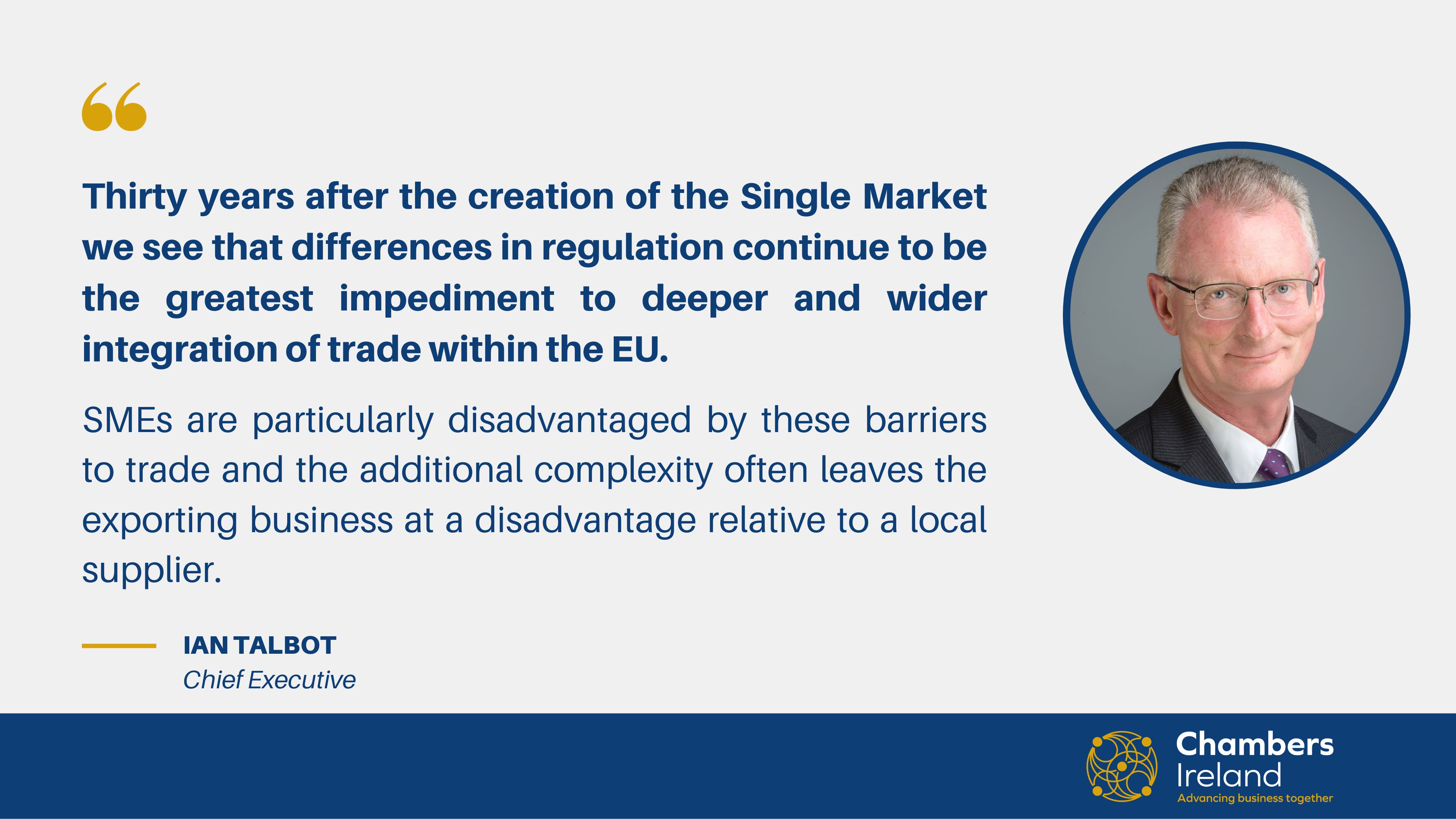The vast majority of firms face obstacles to trading within the single market

The European network of national Chambers of Commerce, Eurochambres, have surveyed over 1,000 firms to identify the issues that they experience when they are trading across borders within the EU Single Market.
Almost 70% of businesses identified the difference in legal practices/contractual arrangements as being their primary challenge when it comes to generating new business in another Member State.
The differences in national standards is either a significant obstacle or an extremely significant obstacle to cross border trade for 63% of businesses. While there has been a lot of standardisation for goods across many sectors, newer technologies often have different requirements in different member states which require localised testing certification and approval procedures. The export of services is also limited by the requirement for local licencing and qualification standards before market access can be granted.
In response Eurochambres is calling on:
- The Commission to provide an information portal that will document the differences between Member States so that exporters can have foreknowledge of the difficulties and allow them to plan accordingly.
- The reduction in red tape both within the EU and Member States, and
- All parties to take consideration of how the wide range of new regulations are impacting SMEs.
Speaking at the launch today (12 January 2024) of the 2024 Eurochambres Single Market Survey, Chambers Ireland Chief Executive, Ian Talbot, said:
“Thirty years after the creation of the Single Market we see that differences in regulation continue to be the greatest impediment to deeper and wider integration of trade within the EU.
“There are large differences in legal culture and practices between Member States. This means that each time a business seeks to trade with a new partner in another state, compromises need to be negotiated. As a result, businesses have to agree on specification changes which increases the costs of trading across borders and also the complexity associated with their business activities. SMEs are particularly disadvantaged by these barriers to trade and the additional complexity often leaves the exporting business at a disadvantage relative to a local supplier.
“The contrast between common law and the civil code in different jurisdictions can have a huge impact for Irish firms. We are used to a system where offers can be withdrawn up until they have been accepted by the counter party, whereas in German law an offer can only be withdrawn after a period of time that is stipulated within the contract.
“As a consequence, agreeing as to which country has jurisdiction over the contract, should there be a dispute, and what language the contract is written can have large and unexpected effects for businesses that are unfamiliar with these differences. It is for this reason that three quarters of businesses need to get in contact with a lawyer to help them overcome obstacles to trade.
“Trade in services is often severely limited across EU borders by the different qualification requirements in different states; just because an individual is qualified to provide a service in one country does not imply that they are free to offer that service in another.
“A feature of these obstacles is that businesses often only encounter them after they have already made a commitment to trade, and the learning experience can become very costly because of the uncertainty that the difference in regulatory requirements introduce.
“One thing the Commission should do is create an online access portal that will help businesses identify where problems are likely to occur for their sector and help them anticipate where obstacles are likely to occur.
“More generally, both the Commission and individual Member States have to take greater consideration of how new regulations are impacting and inhibiting business activities. Many of our members are in the supply chains of larger firms that are subject to sustainability reporting, human rights reporting, ESG reporting and are being required by their customers to meet these standards if they are to tender for contracts. For larger firms, they can bring in consultants and this can be absorbed across the wider organisation, but for SMEs it can become an impossible burden.
– ENDS –
Link to full Single Market Survey report
In brief: 1004 companies participated
87% SMEs
55% services/45% goods
66% currently trade across borders
18% wants to but does not
16% no plans to trade across borders
